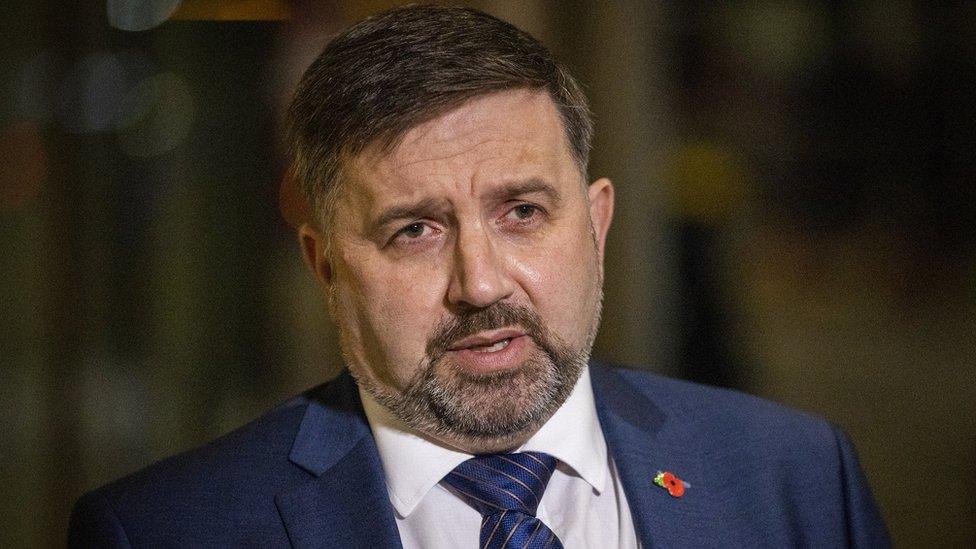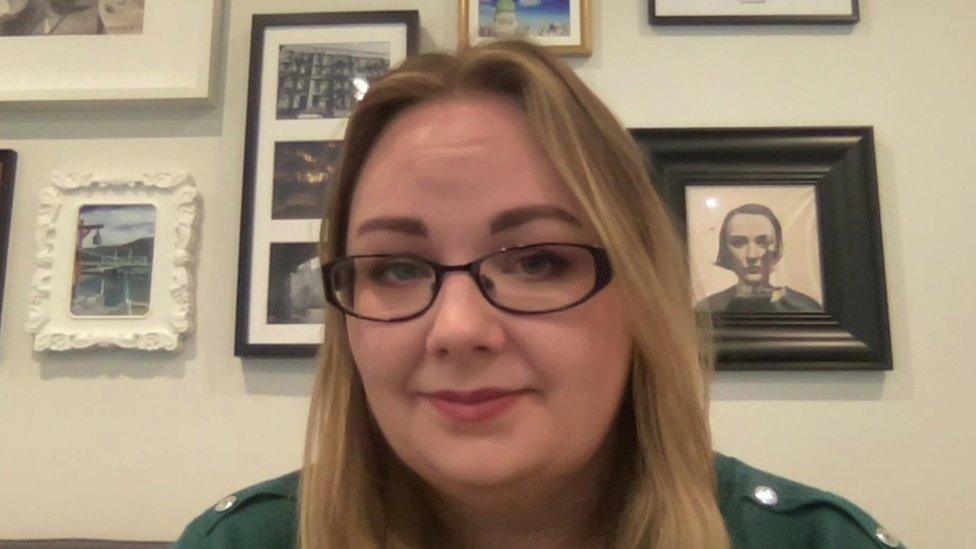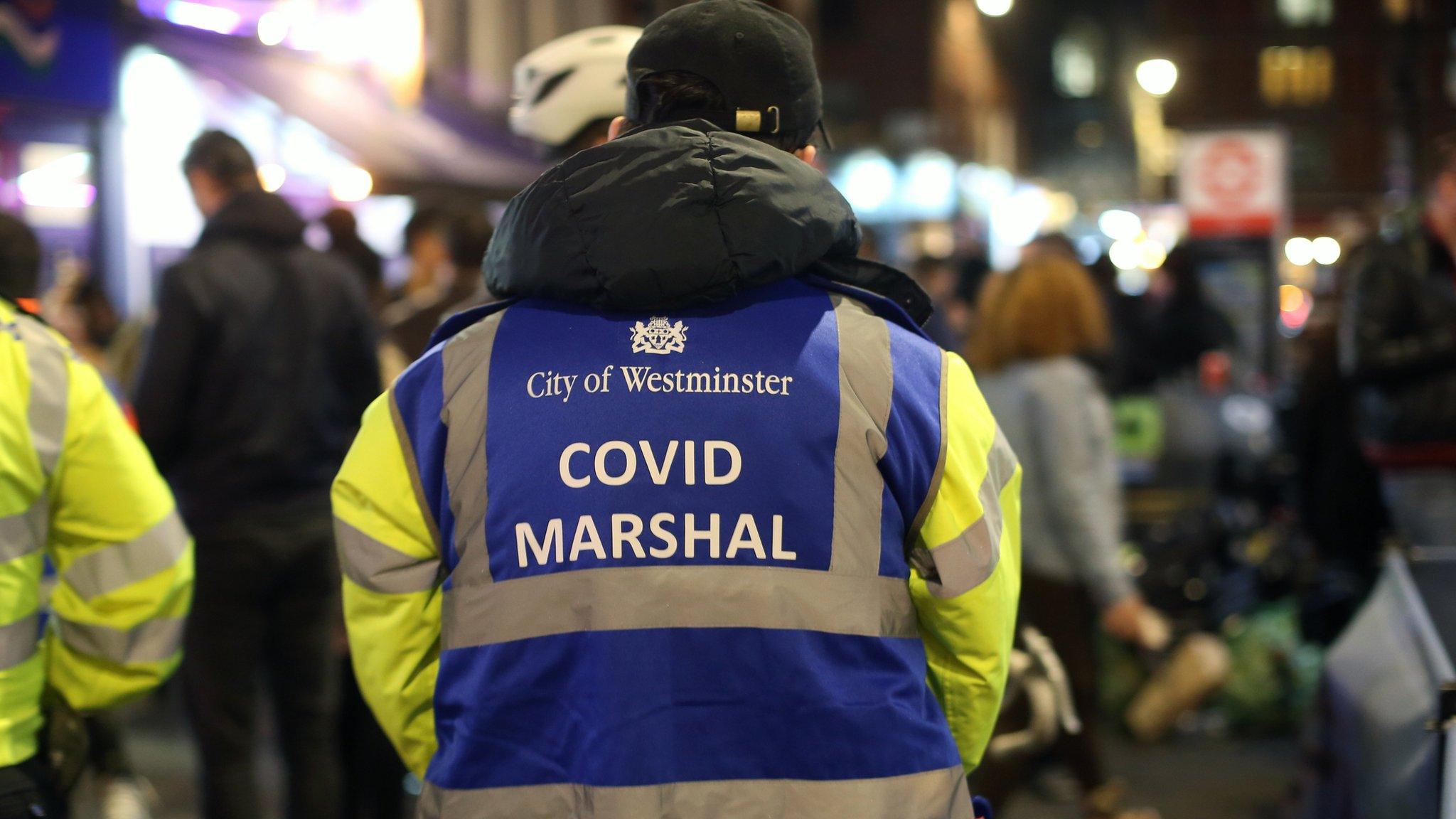Covid-19: Plans in place to identify Omicron variant in NI
- Published
- comments

Robin Swann urged people to wear face coverings, limit contacts and practice good hand hygiene
Plans have been activated to identify any spread of the new Omicron coronavirus variant in Northern Ireland, the health minister has said.
Robin Swann is preparing to update the assembly on Monday on the measures being deployed to tackle the variant.
In a statement released on Sunday evening, he urged the public to continue to practice basic steps that stop the spread of Covid-19.
It comes as a third case of the Omicron variant has been detected in the UK.
The Health Security Agency confirmed the person who contracted the variant is no longer in the UK, but had visited Westminster in London.
In his statement, Mr Swann said the "emerging picture" on the new variant is being monitored and that the Department of Health is liaising with public health colleagues in other parts of the UK and in the Republic of Ireland.
He said: "Subject to the Speaker's approval, I intend to update the Assembly on Monday in regard to the measures being deployed in response to the emergence of the Omicron variant.
"These include the addition of a number of countries to Northern Ireland's Red List for international travel."
As part of plans to identify the new variant, the health minister said his department is using passenger locator data.
The Public Health Agency is also identifying and contacting individuals who have recently arrived in Northern Ireland from Red List countries.
Those identified will be asked to self-isolate and undertake PCR tests and if positive cases are detected, the sample will be tested to determine the variant type.
In his statement, Mr Swann urged people to get vaccinated in a bid to protect themselves against any variant of the virus.
"There are concerns that the Omicron variant may reduce the effectiveness of current vaccines. That is not confirmed and it is important to emphasise that," the health minster said.
"Furthermore, even if this does turn out to be the case, it remains vital that as many people as possible get their first and second doses and their booster vaccines when eligible.
"I have been assured that our vaccines should still provide a level of protection against Omicron."

Dr Lindsay Broadbent says the variant is easy to detect
Speaking to Sunday Politics, Queen's virologist Dr Lindsay Broadbent said that while "on paper" the discovery of the Omicron variant is worrying, more time is needed to know how serious it is.
Omicron was first reported from South Africa on 24 November.
Dr Broadbent said "we shouldn't be too concerned at this stage".
"It is about having an abundance of caution," she told the programme.
"We will not know exactly how much more contagious this variant is, if at all, and we will not know the level of disease this variant causes for two to three weeks," she said.
She added that there was work to be done to ascertain if vaccines are as effective against this variant.
"Acting now really is to try and buy us time if we can prevent the further spread of this variant," she said.
Meanwhile, the leaders of the three coalition parties in the Republic of Ireland are due to meet the National Public Health Emergency Team (NPHET) on Monday to discuss the variant and the wider Covid situation.
It is understood NPHET will meet on Monday afternoon and assess guidance from its epidemiological team which has been monitoring the variant situation across Europe this weekend.
Related topics
- Published6 December 2021
- Published28 November 2021
